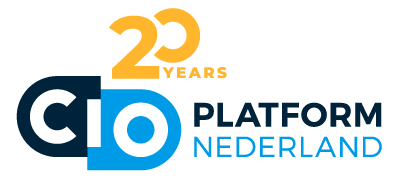Fair Principle 2: Vendors must not create a technical or commercial lock-in
Fair Principle 2: Vendors must not create a technical or commercial lock-in
 Thursday 23 June 2022
Thursday 23 June 2022 Business users associations Beltug, Voice, Cigref and CIO Platform Nederland call for a balanced cloud market: 11 fair principles to unleash Europe’s digital potential. Fair principle 2 calls for every vendor to avoid creating a technical or commercial lock-in.
Today in Europe we find it the most normal thing in the world that trains all run on the same track width, that electricity is delivered at 220V and that soon all smartphones will come with a USB-C adapter. Thanks to all efforts around legislation and regulation, key topics like switching, interchangeability and standardisation have become the norm in mature industry segments.
Software and cloud are not only less tangible but also younger industries. In this segment, there is still a lot of work to be done before the (business) user will be able to experience the same ease of use with the exchange of data and applications. Vendors continue to innovate at a rapid pace, but most software suppliers and cloud providers are not inclined to make changes in their commercial models and technical architectures regarding switching, interchangeability and standardization.
For all organisations and companies software and cloud services are important – if not decisive - production factors, next to many others. In order to allow their customers to achieve sustainable growth, vendors must demonstrate responsible leadership and reduce lock-in around their products and services. After all, in an open innovation ecosystem, switching to other software or cloud solutions should not be prevented or limited by a lock-in:
- Technical lock-in by applying specific technical environment or proprietary formats resulting in a lot of redevelopment, reinvestement in infrastructure or high migration costs.
- Commercial lock-in by specific licence management or conditions, cheap/free first year licenses or new pricing models resulting in uncontrollable cost of ownership in the future.
If you build a house, you know the washing machine will work. On top of that the same water and electricity will work with all other devices too. And you know the cost. As data is thé utility of the data economy, it should work with any application, today and tomorrow. And as we all live in houses where our utilities are available on demand we should all endorse this second principle; vendors must not create a technical or commercial lock-in.
Business users associations Beltug, Voice, Cigref and CIO Platform Nederland call for a balanced cloud market: read all 11 fair principles to unleash Europe’s digital potential here.
More news
Kick off session CxOs in the Maritime Sector | Data in the Port Ecosystem
 Friday 19 July 2024 Knowledge sharing on digitization topics relevant to the maritime sector. Meetings are organized by/in cooperation with CIO Platform Netherlands and are open to organizations wishing to share knowledge on substantive issues. CIO Platform Netherlands reserves the right to deny access to meetings. full story
Friday 19 July 2024 Knowledge sharing on digitization topics relevant to the maritime sector. Meetings are organized by/in cooperation with CIO Platform Netherlands and are open to organizations wishing to share knowledge on substantive issues. CIO Platform Netherlands reserves the right to deny access to meetings. full storyA quick look back at the first six months of 2024
 Friday 12 July 2024 A nice summer blog of our new board member Edward Cox, also General Manager Louwman Group Services. Have a nice summer! full story
Friday 12 July 2024 A nice summer blog of our new board member Edward Cox, also General Manager Louwman Group Services. Have a nice summer! full storyAnnual Day 2024 - Aftermovie
 Monday 08 July 2024 A record number of CIO Platform Nederland members gathered on June 6th to celebrate our community's valuable and sociable Annual Day together under the banner 'Elevate your Digital Transformation'. Watch the aftermovie here. full story
Monday 08 July 2024 A record number of CIO Platform Nederland members gathered on June 6th to celebrate our community's valuable and sociable Annual Day together under the banner 'Elevate your Digital Transformation'. Watch the aftermovie here. full storyResearch on labour market shortages, help us reach 100 and help yourself!
 Monday 24 June 2024 The shortage of qualified ICT talent is a brake on growth for many organisations. Together with other organisations, we are committed to tackling this challenge. We would like to ask for the help of our members by filling out a survey. full story
Monday 24 June 2024 The shortage of qualified ICT talent is a brake on growth for many organisations. Together with other organisations, we are committed to tackling this challenge. We would like to ask for the help of our members by filling out a survey. full story